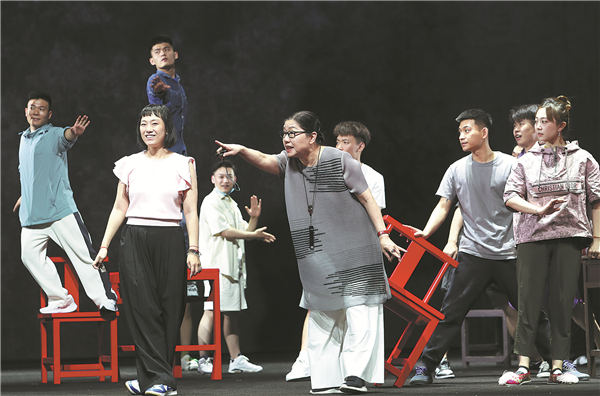Opera turns a new page


In the new production, Yi learns to practice Peking Opera as a child along with her uncle, who is a Peking Opera master. She becomes a star in the Peking Opera troupe but as the old art form faces challenges from the contemporary world, she goes through struggles, with few people watching Peking Opera shows, and deals with the fact that she is being replaced by younger actresses.
"It's cruel but very true for performers of traditional Chinese operas. We've witnessed the ups and downs of Peking Opera and we are all part of the changes," says scriptwriter Xu, adding that the creative team has been working on the production since 2021 and the script has been revised 14 times already.
"Besides the beauty of Peking Opera, we want to show the audience how hard Peking Opera performers work to preserve the old art. Behind their glamour onstage, they go through bitterness and hardships just like everyone," Xu adds.
Peking Opera actress Fu Jia plays the role of Yi and actor Wei Jijun plays the role of Yi's uncle, Hu Sanyuan.
Also known as jingju, Peking Opera is a 200-year-old art form that combines singing, dancing, acrobatics and martial arts.
"Unlike many classic Peking Opera productions we have performed, Leading Role is a contemporary story," says Fu, who was trained by Peking Opera master Du Jinfang (1932-2021). "We sing, recite, act and move onstage, loyal to the rules of Peking Opera. However, we need to make some changes about portraying the characters because they are not from ancient times."
The music of Peking Opera plays a key role in setting the pace of the show, creating a particular atmosphere, shaping the characters, and guiding the progress of the stories. In Leading Role, the drum is used as a solo instrument throughout the show. Other traditional instruments, such as the sheng (Chinese free-reed wind instrument), xiao (Chinese vertical flute) and erhu (two-stringed bowed instrument), are also featured as soloists, besides their traditional use in an ensemble.





































